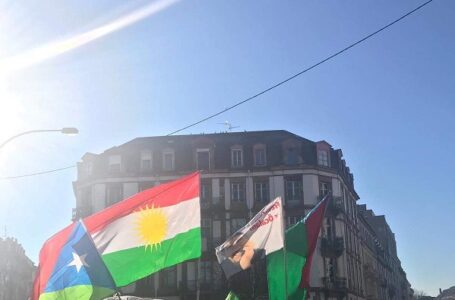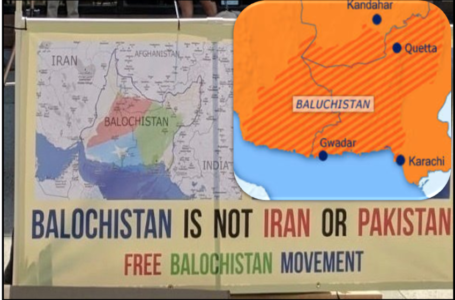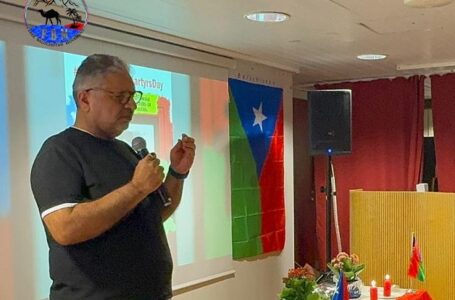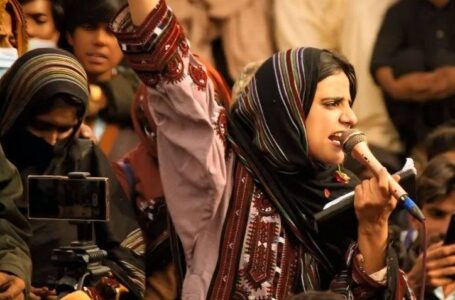Israel’s decisive Attack on Iran a Significant Opportunity for Baloch National Independence: FBM
Balochistan Liberation Movement: A Global Perspective
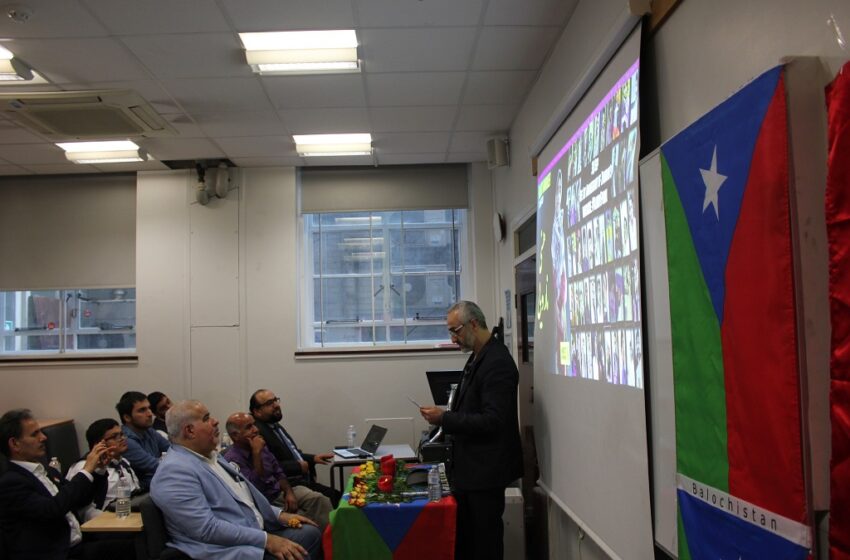
Shahdad Baloch
Balochistan, a region spanning Iran and Pakistan, has been a long-standing hotspot of conflict and turmoil. The quest for its liberation holds immense significance, not only for the Baloch people but also for the wider Middle East, South Asia, and the global community. This region boasts abundant natural resources, including extensive reserves of natural gas, minerals, and a strategically vital coastline. The potential liberation of Balochistan from Iran and Pakistan could disrupt the existing energy market equilibrium and reshape the geopolitical dynamics of the area. This newfound autonomy could open doors for Balochistan to forge economic partnerships that may, in turn, have a profound impact on the global economic order.
For instance, the Strait of Hormuz, a critical chokepoint for oil transit, lies near Balochistan. The emergence of an independent Balochistan could exert influence over the flow of oil through this region, with repercussions for energy prices worldwide. Furthermore, the untapped mineral resources in Balochistan could become a valuable asset in international trade, benefiting both the Baloch people and their global partners.
Both Pakistan and Iran have faced international scrutiny for their actions on the global stage. Pakistan, despite receiving significant aid under the banner of the war on terror, has been only accused of harbouring terrorist groups and supporting insurgencies in neighbouring Afghanistan and India. Iran, on the other hand, has come under the spotlight for its nuclear ambitions and regional interventions, often sponsoring proxies in the Middle East and contributing to conflicts and instability. Their actions have been a source of global concern, rather than constructive contributions to international well-being.
Moreover, both nations have been implicated in severe human rights violations, particularly in Balochistan. Disturbing reports of enforced disappearances, extrajudicial killings, and torture have become all too common. The Baloch people have borne the brunt of these atrocities as they continue to seek freedom, peace, religious tolerance, and a harmonious world. In contrast, the Baloch nation has persevered for decades with limited resources in defence of its values.
The Durand Line, delineating the border between British India and Persia (now Iran), and defining the Goldsmith Line boundary between British India and Afghanistan, have been points of contention for Baloch and Pashtun versus Pakistan and Iran, for many years. These lines symbolize external impositions that have divided the Baloch nation and left a history of bloodshed in their wake.
The Free Balochistan movement, echoing Marri’s sentiments, has initiated a series of protests on the global stage to draw attention to the injustices faced by the Baloch people. These demonstrations aim to rally international support for the Balochistan liberation movement and emphasize the necessity of a peaceful resolution to the longstanding conflicts, as per the restoration of United Balochistan as of 1839. The liberation of Balochistan could potentially contribute to enhanced regional stability by addressing deep-seated grievances and conflicts in the region.
Furthermore, China’s substantial investments in the China-Pakistan Economic Corridor (CPEC), which traverses Balochistan, could face disruptions in the event of Balochistan’s independence. Such a scenario would impact China’s broader Belt and Road Initiative, a project imposed on the Baloch people by Pakistan and China. The Baloch nation has steadfastly resisted these colonial projects for decades, even in the absence of significant global support. The silence of the international community is emboldening China, Pakistan, and Iran to reshape the regional and global power balance in their favour. It is imperative for the international community, including the United Nations, to take an active role in facilitating the realization of Baloch freedom through diplomatic means, aligning with the just and judicious demand for an independent Balochistan.
In conclusion, the liberation of Balochistan is a pressing need of our time, with far-reaching positive implications for the global community that values peace and justice. Balochistan’s wealth of resources, the questionable actions of Pakistan and Iran on the world stage, human rights abuses, and historical grievances have all coalesced into an ongoing struggle. As the Free Balochistan movement gains momentum and global attention, the world must carefully deliberate its role in shaping the future of this region and the broader geopolitical landscape. A peaceful and just resolution is not only essential for the Baloch people but also for the stability and prosperity of the Middle East, South Asia, and the world.



